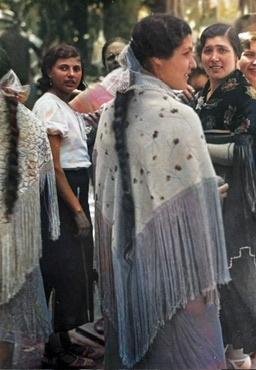What were the main challenges faced by Mallorcan missionaries when establishing missions in Australia?
Similar Topics
mallorcan missionaries
cultural challenges
indigenous languages
australian landscape
harsh climates
colonial australia
missionary adaptation
indigenous rights
Mallorcan missionaries who ventured to establish missions in Australia encountered a range of significant challenges that tested their resilience and adaptability. One of the main obstacles was the vast cultural differences between the indigenous communities and the European missionaries. The Mallorcans, coming from a Mediterranean background, had to navigate unfamiliar languages, customs, and worldviews. This often complicated their efforts to communicate effectively and to introduce Christian teachings in a manner that respected the local traditions and beliefs. The missionaries needed to learn indigenous languages, a task that required patience and linguistic skill, which sometimes delayed their outreach and hampered immediate connections with the communities they sought to serve.
Environmental factors also posed a considerable challenge. The Australian landscape differed starkly from the familiar terrain of Mallorca, with harsh climates, expansive deserts, and remote areas that made travel and settlement difficult. Limited access to essential resources such as water and food made the daily life of missionaries demanding, while the isolation of many mission sites created feelings of loneliness and vulnerability. Moreover, diseases unfamiliar to the missionaries sometimes spread within mission communities, adding to the health risks they faced. These physical hardships necessitated significant adjustments to their usual ways of living and working.
Beyond cultural and environmental challenges, Mallorcan missionaries often found themselves grappling with the broader political and social context of colonial Australia. Relationships between European settlers, colonial authorities, and indigenous peoples were frequently tense and complex. The missionaries had to carefully navigate these dynamics to maintain trust and avoid conflict. Their mission to provide education, religious instruction, and basic healthcare was sometimes viewed with suspicion by both colonial settlers and indigenous groups, complicating their work further. Despite these challenges, the Mallorcan missionaries remained dedicated, often becoming influential figures in advocating for indigenous rights and cultural preservation.
In summary, the Mallorcan missionaries’ experiences in Australia were marked by a blend of cultural, environmental, and political difficulties. Their success depended largely on their ability to adapt to new linguistic and social environments, endure physically demanding conditions, and mediate complex relations in a colonial context. Their perseverance, though often tested, contributed significantly to the historical tapestry of missionary activity in Australia.
Environmental factors also posed a considerable challenge. The Australian landscape differed starkly from the familiar terrain of Mallorca, with harsh climates, expansive deserts, and remote areas that made travel and settlement difficult. Limited access to essential resources such as water and food made the daily life of missionaries demanding, while the isolation of many mission sites created feelings of loneliness and vulnerability. Moreover, diseases unfamiliar to the missionaries sometimes spread within mission communities, adding to the health risks they faced. These physical hardships necessitated significant adjustments to their usual ways of living and working.
Beyond cultural and environmental challenges, Mallorcan missionaries often found themselves grappling with the broader political and social context of colonial Australia. Relationships between European settlers, colonial authorities, and indigenous peoples were frequently tense and complex. The missionaries had to carefully navigate these dynamics to maintain trust and avoid conflict. Their mission to provide education, religious instruction, and basic healthcare was sometimes viewed with suspicion by both colonial settlers and indigenous groups, complicating their work further. Despite these challenges, the Mallorcan missionaries remained dedicated, often becoming influential figures in advocating for indigenous rights and cultural preservation.
In summary, the Mallorcan missionaries’ experiences in Australia were marked by a blend of cultural, environmental, and political difficulties. Their success depended largely on their ability to adapt to new linguistic and social environments, endure physically demanding conditions, and mediate complex relations in a colonial context. Their perseverance, though often tested, contributed significantly to the historical tapestry of missionary activity in Australia.
🧩 Related Questions
Related Question
What are the most notable Sanskrit texts that Joan Mascaró i Fornés translated and promoted?
Related Question
How are the stories of those kidnapped by pirates remembered or commemorated in modern Mallorca?
Related Question
How is the prickly pear used in traditional Mallorcan cuisine?
